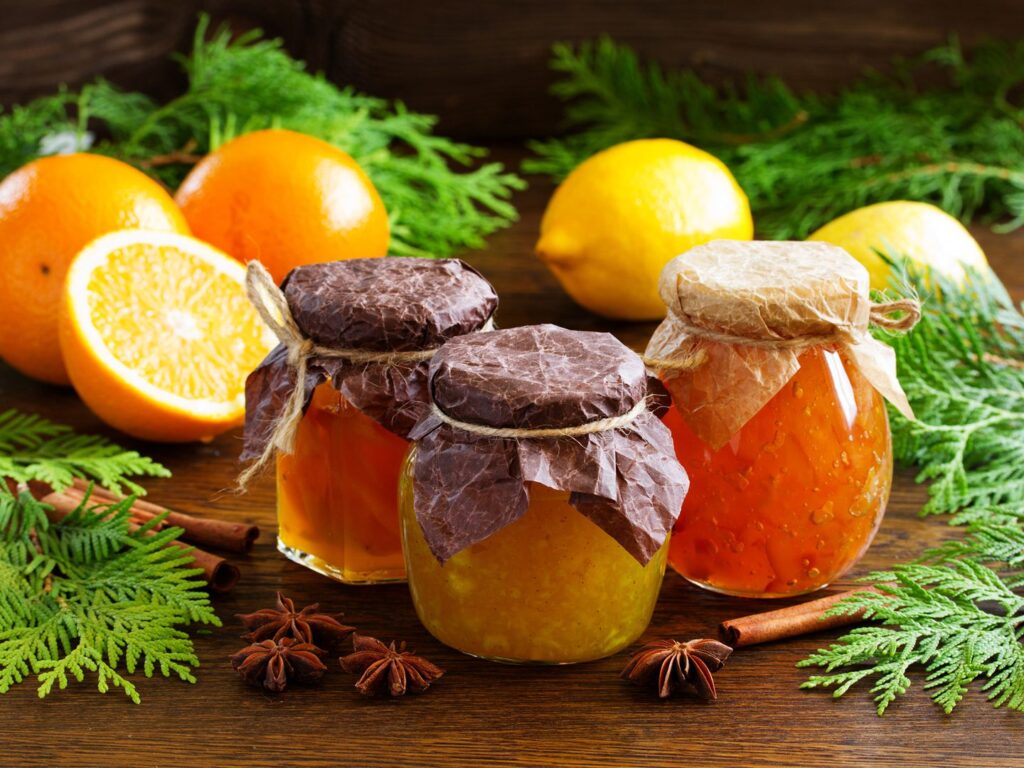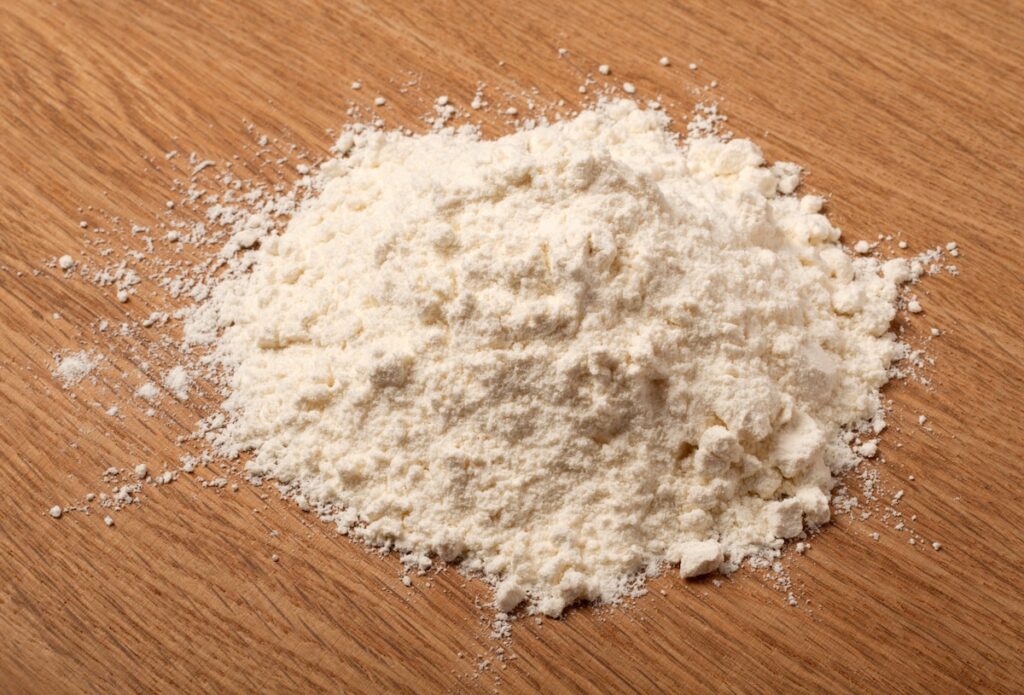You might think of pectin as something that only exists in a jam, but this natural substance actually has a variety of uses.
Pectin is a type of dietary fiber that is found in plant cells.
It is often used as a gelling agent or thickener, and it can be added to food or cosmetics to create the desired consistency.
Pectin is also available in powder form, and it can be used to make homemade jams and jellies.
In this article, we will explore how to cook with and use pectin, as well as 5 of the best substitutes for pectin.
So, whether youre looking for a vegan-friendly alternative to gelatin or just want to add some extra fiber to your diet, read on for everything you need to know about pectin.
Contents
- What is Pectin?
- The 5 Best Substitutes for Pectin
- Conclusion
- FAQs
- What is a good substitute for pectin?
- What are 5 examples of pectin?
- What is a natural form of pectin?
- Is Knox gelatin the same as pectin?
- What thickens jam without pectin?
- What has the most natural pectin?
- Does apple cider vinegar contain pectin?
- Which fruit has the highest pectin?
- What vegetable has the most pectin?
- What are the best sources of pectin?
What is Pectin?

Pectin is a type of dietary fiber found in fruits and vegetables.
It is a complex carbohydrate that is water soluble and difficult to digest.
Pectin was first isolated in 1825 by Henri Braconnot, a French chemist.
In 1843, another French chemist, Percy Chanzy, successfully extracted pectin from citrus fruits.
Pectin is found in the cell walls of plants and is what gives the fruit its firmness.
It is also responsible for the gel-like texture of jams and jellies.
Pectin has a mild, sweet taste.
It is used as a thickening agent in many food products such as jams, jellies, pies, and salad dressings.
You can also find it in some cosmetics and medicines.
Pectin is widely available in supermarkets and health food stores.
You can purchase it in powder or liquid form.
To use pectin, you need to add it to a recipe that already contains sugar and acid.
The sugar helps the pectin to gel, and the acid prevents it from tasting too sweet.
Pectin can also be used to make fruit leathers or homemade candy.
When cooking with pectin, be sure to follow the recipe carefully, as too much or too little pectin can ruin a dish.
The 5 Best Substitutes for Pectin

If you dont have pectin or cant find it at your local grocery store, dont worry.
If you dont have pectin or cant find it at your local grocery store, dont worry.
Here are the five best substitutes for pectin:
1 – Agar Agar
Agar agar is a type of algae that is often used as a food thickener or gelling agent.
It is available in powder, flakes, or sheets and can be found in most Asian grocery stores.
When dissolved in water, agar forms a gel-like substance that is similar in texture to Jell-O.
Agar agar can be used as a vegan substitute for gelatin and is also effective in making fruit jams and jellies.
In order to use agar as a pectin substitute, simply dissolve one teaspoon of powder in 1 cup of water.
Add this mixture to the fruit jam or jelly recipe as directed.
For best results, be sure to simmer the mixture for at least 10 minutes before using.
2 – Gelatin
Gelatin is a protein that comes from collagen, which is found in the skin, bones, and connective tissues of animals.
Its available in powder, sheet, and granule form, and its used to thicken and stabilize food.
Gelatin has a unique taste and texture-its often described as being slimy or slippery.
Some people enjoy the taste of gelatin, while others find it unappealing.
However, gelatin is relatively flavorless, so it can be easily incorporated into recipes.
Gelatin can be used as a pectin substitute.
It can also be used to create different textures in food.
For example, it can be used to make jelly-like desserts or to create a smooth, creamy texture.
3 – Guar Gum
Guar gum and Xanthan gum are both thickening agents that can be used as a substitute for pectin.
Both gums will add a similar texture to your preserves, but they will not add any flavor.
Guar gum is made from the seeds of the guar plant, while Xanthan gum is a synthetic food additive.
If you are looking to add some extra fiber to your preserves, then guar gum is the better choice.
However, if you are looking for a completely neutral taste, then Xanthan gum is the way to go.
Either way, both gums are effective substitutes for pectin.
4 – Chia Seeds
Chia seeds are a versatile and healthy ingredient that can be used in a variety of recipes.
They have a mild, nutty flavor and a slightly crunchy texture.
They are also a great source of fiber and omega-3 fatty acids.
One of the great things about chia seeds is that they can be used as a substitute for pectin.
Pectin is an ingredient that is commonly used to thicken jams and jellies.
However, it can be difficult to find pectin that is not made from GMO ingredients.
Chia seeds can be used as a natural and healthy alternative to pectin.
To use them, simply soak the seeds in water for about 15 minutes.
Then add the soaked seeds to your jam or jelly recipe along with the other ingredients.
The chia seeds will help to thicken the mixture as it cooks.
5 – Cornstarch
You might not think of cornstarch as a pantry staple, but this versatile ingredient can be used in all sorts of recipes.
It has a neutral flavor and a light, powdery texture that makes it perfect for thickening sauces and gravies.
You can also use it to coat chicken or fish before frying or to dust your work surface when rolling out dough.
And if youre looking for a pectin substitute, cornstarch is a great option.
Just mix it with water and add it to your preserves or jam to help them set.
So next time youre in the supermarket, be sure to pick up some cornstarch youll be surprised at how often you reach for it.
Conclusion
In conclusion, there are many substitutes that can be used in place of pectin.
Each substitute has its own unique benefits and drawbacks.
Some substitutes, like gelatin and cornstarch, are fairly common pantry staples.
Others, like agar agar and chia seeds, might be less familiar but are still easy to find at most supermarkets.
Ultimately, the best substitute for pectin is the one that best suits your needs.
So experiment and see what works best for you.